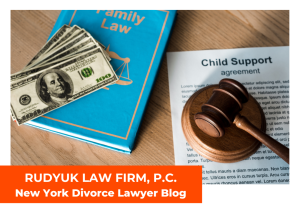 In New York child support cases, it is not uncommon for one parent to request an upward modification if they believe the other parent’s income has increased. However, courts require clear, specific proof before altering an existing support order. A recent New York decision highlights how even credible concerns about increased earnings may fall short without proper documentation and procedural precision. If you are considering a modification of child support or defending against one, it is essential to understand what courts require and to consult a knowledgeable New York family law attorney before moving forward.
In New York child support cases, it is not uncommon for one parent to request an upward modification if they believe the other parent’s income has increased. However, courts require clear, specific proof before altering an existing support order. A recent New York decision highlights how even credible concerns about increased earnings may fall short without proper documentation and procedural precision. If you are considering a modification of child support or defending against one, it is essential to understand what courts require and to consult a knowledgeable New York family law attorney before moving forward.
Factual and Procedural History
It is reported that the parties are the parents of a child born in 2015. Allegedly, beginning in 2020 and continuing into 2021, the parties filed more than two dozen petitions in Family Court raising issues that included child support disputes, interference with parenting time, and allegations of harassment. These matters were consolidated for a joint hearing that commenced in June 2021.
Allegedly, after the hearing had already begun, the mother filed a separate petition in July 2021 seeking an upward modification of the father’s child support obligation. The petition did not identify the specific support order the mother sought to modify, nor did she introduce that order into evidence. It appears that the operative order was entered on consent in January 2020 and required the father to pay $100 per week in child support, which both parties acknowledged was a voluntary upward departure from a lower guideline amount based on the father’s limited documented income at the time.
 New York Divorce Lawyer Blog
New York Divorce Lawyer Blog

